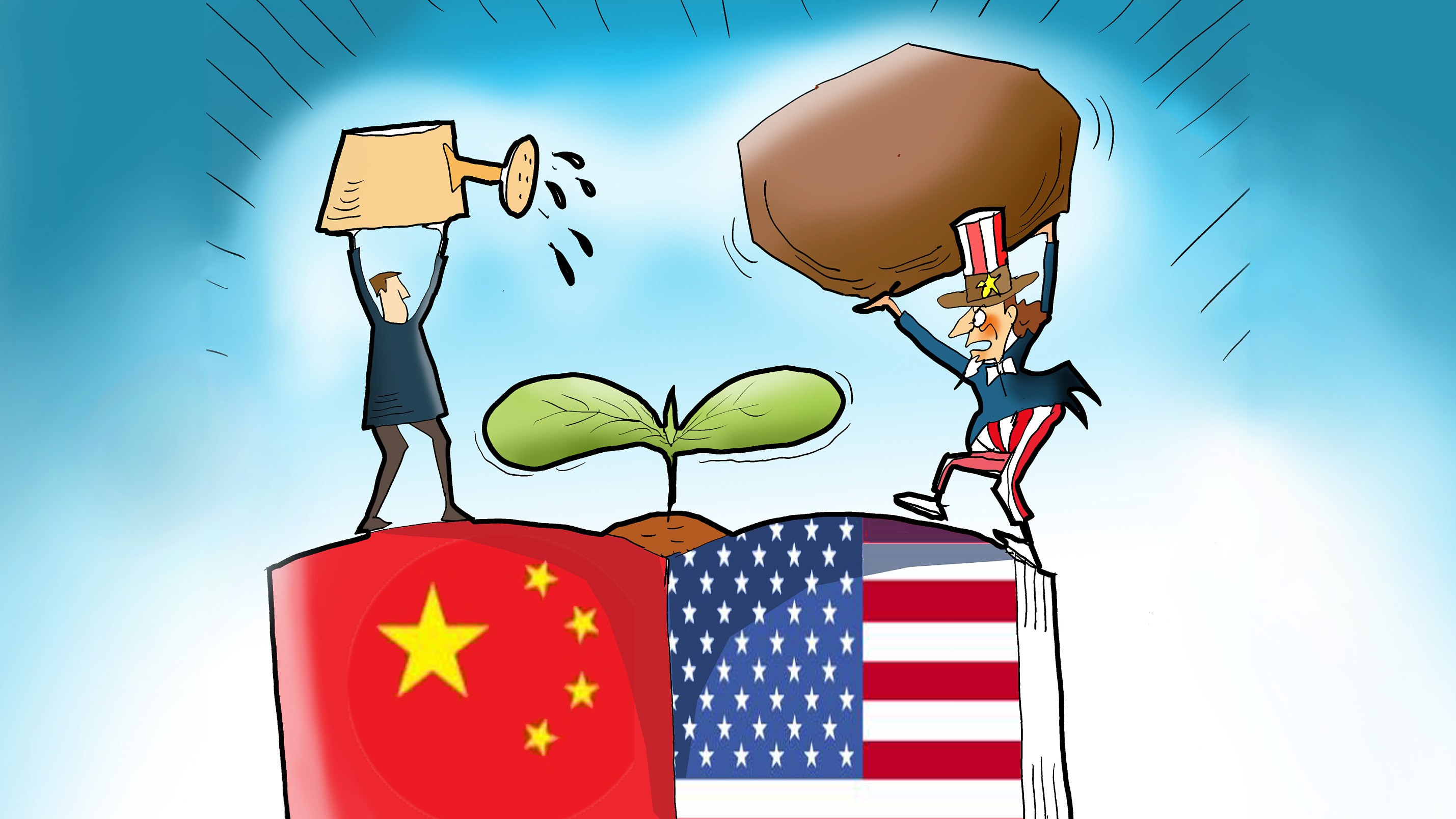
(Photo: CGTN)
After Trump escalated his trade war with China by threatening to impose tariffs on 200 billion dollars worth of Chinese goods, another shot has been fired with his European allies on Friday when the EU’s retaliatory tariffs on US goods came into force. In a tweet, Trump wrote: “If these Tariffs and Barriers are not soon broken down and removed, we will be placing a 20% Tariff on all of their cars coming into the U.S. Build them here!”
With Trump's fire spreading to the whole world, some experts claim that starting a trade war might not be a wise decision.
An inaccurate figure?
Trump always stresses the word "trade deficit" when he talks about the economic relationship between the US and other countries. According to Trump, the US has a “large” trade deficit with China, with Canada, with Japan, with Europe, with “almost” all countries in the world.
Trump pointed out in a news conference on March 23 that in 2017 the US lost 500 billion US dollars on trade with China, much larger than the figure of 375 billion US dollars published by the Commerce Department and the figure of 275.8 billion US dollars shown by China's General Administration of Customs data.
According to the Deutsche Bank, the figure for trade surplus released by the Commerce Department is improper for it didn't capture the true size of US business interest in China. For example, it didn't count the sales of goods and services by foreign firms' local subsidiaries.
US and US consumers eventually "benefit" from the trade deficit
In an interview with Xinhua, regarding the US complaining of "suffering" from the trade deficit, Farok J. Contractor, a professor in Rutgers Business School's management and global business department said, "suffer is the wrong word.”
In an article published on his website Globalbusiness.blog, Contractor analyzed how the US and US consumers can eventually "benefit" from the trade deficit. He said that the Chinese Central Bank will reinvest the annual surplus dollars gained by its exports with the US into US assets, which will lead to positive results like: "The dollar remains strong, US interest rates remain low for the American consumer's auto loans and mortgages, US consumers can still 'enjoy' reasonably well-made Chinese products at low prices,with the US government budget being partially financed by China, etc." He stressed that "A trade deficit simply means that the US imports and consumes more from the rest of the world than it sells to the rest of the world."
No victor, just wasted resources
According to an article written by George Magnus published in the Financial Times, a tariff is a controversial weapon which causes a lot of damage. He claims that the trade war will hurt the US by using the example of the steel industry. He said that imposing tariffs on steel products has caused the domestic steel prices to rise nearly 40% since March. For steelmakers, maybe more jobs are coming, but for the steel consumers, the rise in prices makes them worry about unemployment in the whole economic sector.
Also, Contractor in his interview mentioned that tariffs can't bring back jobs. Because even if the Chinese products raise their prices because of the additional tariffs, international companies won't turn to the US because salaries of workers are too high to afford. They may turn instead to other developing countries like Vietnam or Bangladesh.
Starting with a "controversial" number, processing with a “wrong estimated effect”, leading a "damaging" result, maybe the trade war is just like what Paul Krugman described in his article: "Thinking About a Trade War (Very Wonkish)" published in The New York Times: "There’s (usually) no victor, just a lot of wasted resources."


